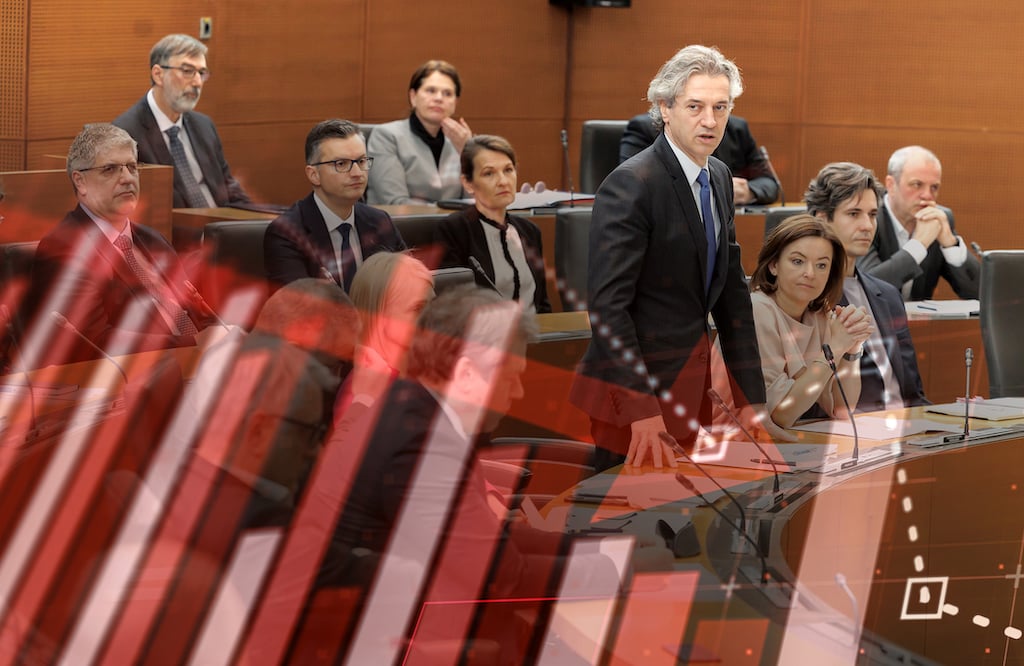A report by the Institute of Macroeconomic Analysis and Development (UMAR) showed that the economic climate in our country had declined further in June, driven by negative results from confidence indicators in services and among consumers, and to some extent, also in manufacturing and construction. The economic climate has also deteriorated on average in the second quarter compared to the first quarter, and the overall sentiment is also much worse compared to the second quarter of last year. The government’s anti-business policy is clearly already working, which will only multiply later due to the long macroeconomic cycles.
The mood in the Slovenian economy has thus deteriorated for the sixth consecutive month in June and has remained below its long-term average since January. The economic sentiment indicator fell by 1.8 percentage points on a month-to-month basis and by 5.4 percentage points on a year-on-year basis to -4.8 percentage points. Compared to May, the largest negative impact of the sentiment indicator was recorded in the service industry and, compared to June last year, in manufacturing.
The fall, according to the Institute of Macroeconomic Analysis and Developments, is due to a lack of confidence in services and among consumers, and to some extent, also in manufacturing and construction. The only positive indicator contribution was that in retail trade. Consumer confidence, which after a gradual increase since the beginning of the year, fell for the first time this year in June, deteriorated in all components of the indicator, most notably households’ expectations about their financial situation. Businesses in the service industries report a deterioration in the business situation in particular, while those in manufacturing and construction further report a deterioration in the orders indicator, which is linked to the uncertain economic situation and weak foreign demand.
Who is misleading?
Prime Minister Robert Golob has recently said that he believes that economic growth is driven by construction, tourism and information and telecommunication services. “Economic growth is currently being driven by construction and services, both tourism and ICT services. In these three areas, Slovenia is ahead of forecasts, and these three areas are the ones that are really driving economic growth at the moment,” he said. In the construction sector, however, the confidence indicator fell by 1.0 percentage point this month compared with the previous month, according to the Statistical Office of the Republic of Slovenia. It was 7.0 percentage points lower than in the same period of the previous year.
Slovenia needs tax reforms to create a supportive business environment, which will make it attractive for investors and able to retain highly educated domestic and attract top foreign talent to help raise the country’s productivity. But the Golob government is doing the exact opposite of that.
Golob would save the economy with foreigners
As Golob said recently, he believes that economic growth would be higher if the industry and the economy as a whole did not face labour shortages. He, therefore, sees it as crucial to ensure that the economy has as many skilled workers as possible to keep up with demand. He then highlighted the recent adoption of an amendment to the law on foreigners, which will make it easier to renew work permits and to obtain new ones.
The Golob government’s socialist experiments
On the 1st of January, the coalition repealed Janša’s amendment to the Income Tax Act. Only the general income tax allowance of 4,500 euros a year was retained. Everything else was repealed, which means that wages are effectively lower, but if an entrepreneur wants to be competitive in employment with foreign employers, he has to pay higher labour taxes. They also increased taxes on rent, which will further reduce economic activity. They are even announcing progressive taxation of all citizens’ assets. Economists describe such intentions as a dangerous solution. They have also increased taxes on capital gains and increased the taxes for part-time sole traders who pay standardised contributions by 100 percent – however, this is one of the main employment options of the people who are skilled in high tech in Slovenia – and there is now a real danger of them relocating, too.
Sara Kovač


